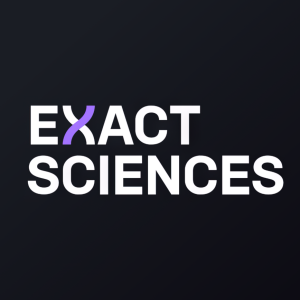New Modeling Data Show the Cologuard® Test Has Detected More Than 623,000 Cancers and Precancers Over Past Decade, Saving U.S. Health Care System $22 Billion
Data demonstrate long-term impact of the Cologuard test, a powerful tool for preventing and detecting cancer
The data assessed the far-reaching benefits of the first and only multi-target stool DNA test for patients, their families, and the health care system. Over the past 10 years, the Cologuard test has been used to screen for colorectal cancer (CRC) more than 16 million times.
The Cologuard test is the most effective noninvasive option for CRC screening1 and an important tool for closing the gap of 60 million Americans not up to date with screening.2 According to data from the Centers for Disease Control and Prevention (CDC), Cologuard test use is the primary contributor to the increase in colon cancer screening rates from
“As Exact Sciences marks the 10th anniversary of Cologuard, we reflect on the vital role that it has played in the prevention and early detection of colorectal cancer, making screening more accessible and effective for patients,” said Kevin Conroy, chairman and CEO of Exact Sciences. “We reached this milestone thanks to long-standing partnerships from health care professionals and advocacy organizations, as well as the support of our dedicated team. With our next-generation Cologuard test currently under FDA review, we look forward to bringing patients a new level of accuracy and innovation in at-home testing.”
10 years of patient impact
The modeled data projects that over the past 10 years5*:
- There have been more than 16 million completed screenings with the Cologuard test, or approximately one every 20 seconds.
- The Cologuard test detected 525,000 people with advanced precancerous lesions — growths most likely to advance to cancer. Removal of these growths can help prevent cancer.
-
80% of cancers detected by the Cologuard test were early-stage cancers. - 42,000 people were identified to have stage I. By detecting cancer earlier, patients are less likely to need chemotherapy or radiation treatment, sparing them and their families that difficult experience.
“Colorectal cancer is the number two cancer killer6, but it doesn’t need to be this way. We have very effective tools to find the precursors to this cancer and also to detect these cancers at earlier, more curable stages,” said Dr. Folasade May, director of quality in digestive diseases at UCLA Health and co-founder and board member of the Association of Black Gastroenterologists and Hepatologists. “With the convenience of a noninvasive use-at-home test and ability to find more than
Improvements in CRC screening participation, health care and the economy
The strong performance of the Cologuard test has also positively impacted CRC screening rates, the economy, health care access and costs. The modeled data projected that since the Cologuard test was introduced5*:
-
More than
$22B -
The Cologuard test contributed to
77% of the improvement in CRC screening rates between 2018 and 2021.9 -
Health care staff were able to reduce hours spent toward screening average risk and asymptomatic people, allowing them to focus on treating people with symptoms and those who are high risk with colonoscopies. The projections show use of the Cologuard test as an alternative to colonoscopy in eligible patients has helped save:
- 2.1 million scheduling hours5,10*
- 3.5 million nursing hours5,10*
- 1.1 million provider hours5,10*
During a time when at-home health and wellness tests were relatively limited, the Cologuard test transformed CRC screening access. Within a decade, more people screened for colorectal cancer than ever before because of the Cologuard test — playing a critical role in addressing the screening gap for average-risk adults that colonoscopies and other tests cannot close alone. Data show that if colonoscopy were the only tool available, it would take more than 10 years to address the backlog.1,5,11
“I was 47 when I screened with Cologuard,” said Katie Hawbaker, a stage II CRC survivor. “Early detection is everything. Finding out I had a cancerous mass was a huge shock, but I have lots to be thankful for — I needed no chemo or radiation because my cancer was caught early.”
Exact Sciences continues to invest in innovation and improvements to the Cologuard test, emphasizing the company’s commitment to revolutionizing CRC screening and closing the screening gap. The next-generation Cologuard test is under review with the
*Estimates are based on modeling projections using performance data from the pivotal DeeP-C study
† Dr. Folasade May has provided consulting services for Exact Sciences. She has not been compensated for any media work.
1. Fendrick AM, Fisher DA, Saoud L, Ozbay AB, Karlitz JJ, Limburg PJ. Impact of Patient Adherence to Stool-Based Colorectal Cancer Screening and Colonoscopy Following a Positive Test on Clinical Outcomes. Cancer Prev Res (Phila). 2021;14(9):845-850. doi:10.1158/1940-6207.CAPR-21-0075
2. Ebner DW, Kisiel JB, Fendrick AM, et al. Estimated Average-Risk Colorectal Cancer Screening-Eligible Population in the US. JAMA Netw Open. 2024;7(3):e245537.
3. National Institutes of Health. The Cancer Trends Progress Report. https://progressreport.cancer.gov/detection/colorectal_cancer. Accessed July 29, 2024.
4. Epic Research. DNA Stool Tests for Colorectal Cancer Screening Growing in Popularity, Especially for Patients Under Age 50. May 14, 2024. https://www.epicresearch.org/articles/dna-stool-tests-for-colorectal-cancer-screening-growing-in-popularity-especially-for-patients-under-age-50. Accessed July 29, 2024.
5. Estes C, Dehghani M, Ozbay A, et al. Clinical, social and economic impacts of colorectal cancer screening with the multi-target stool-DNA test: 10-year experience – a simulated study. MedRxiv.org https://doi.org/10.1101/2024.08.07.24311643
6. ACS. Cancer facts & figures 2024.
7. Imperiale TF, Ransohoff DF, Itzkowitz SH, et al. Multitarget stool DNA testing for colorectal-cancer screening. N Engl J Med. 2014;370(14):1287-1297.
8. Fitch K, Pyenson B, Blumen H, et al. The value of colonoscopic colorectal cancer screening of adults aged 50 to 64. National Library of Medicine. 2015; 21(7):e430-8. Accessed June 27, 2024. https://pubmed.ncbi.nlm.nih.gov/26295271/
9. Ebner DW, Finney Rutten LJ, Miller-
10. Horejsi A,
11. Joseph DA, Meester RG, Zauber AG, et al. Colorectal cancer screening: Estimated future colonoscopy need and current volume and capacity [published correction appears in Cancer. 2017 Oct 1;123(19):3857]. Cancer. 2016;122(16):2479-2486.
About the Cologuard test
The Cologuard test is a first-line colorectal cancer screening test for use in adults age 45 or older who are at average risk for the disease. It is included in national colorectal cancer screening guidelines by the American Cancer Society (2018)1 and the
The Cologuard test revolutionized colorectal cancer screening by providing a best-in-class, noninvasive testing option for those at average risk. The test looks for certain DNA markers and blood in the stool that are associated with colorectal cancer and precancer and was shown to effectively detect colorectal cancer and precancer in the pivotal phase 3 DeeP-C study.3 The Cologuard test is easy to use. It can be completed at home and does not require any time off or special preparation. In the initial 10 years since launch, the Cologuard test was used more than 16 million times.
Important information about the Cologuard test
Do not use the Cologuard test if you have had precancer, have inflammatory bowel disease and certain hereditary syndromes, or have a personal or family history of colorectal cancer. The Cologuard test is not a replacement for colonoscopy in high-risk patients. The Cologuard test performance in adults ages 45-49 is estimated based on a large clinical study of patients 50 and older. The Cologuard test performance in repeat testing has not been evaluated.
The Cologuard test result should be interpreted with caution. A positive test result does not confirm the presence of cancer. Patients with a positive test result should be referred for colonoscopy. A negative test result does not confirm the absence of cancer. Patients with a negative test result should discuss with their doctor when they need to be tested again. Medicare and most major insurers cover the Cologuard test. For more information about the Cologuard test, visit Cologuard.com. Rx only.
About Exact Sciences Corp.
A leading provider of cancer screening and diagnostic tests, Exact Sciences gives patients and health care professionals the clarity needed to take life-changing action earlier. Building on the success of the Cologuard® and Oncotype® tests, Exact Sciences is investing in its pipeline to develop innovative solutions for use before, during, and after a cancer diagnosis. For more information, visit ExactSciences.com, follow Exact Sciences on X (formerly known as Twitter) @ExactSciences, or find Exact Sciences on LinkedIn and Facebook.
NOTE: Exact Sciences and Cologuard are trademarks or registered trademarks of Exact Sciences Corporation. Oncotype, Oncotype DX, Oncotype DX Breast Recurrence Score, RSClin, and Recurrence Score are trademarks or registered trademarks of Genomic Health, Inc. All other trademarks and service marks are the property of their respective owners. Cologuard is not available outside of the
Forward-Looking Statements
This news release contains forward-looking statements concerning our expectations, anticipations, intentions, beliefs, or strategies regarding the future. These forward-looking statements are based on assumptions that we have made as of the date hereof and are subject to known and unknown risks and uncertainties that could cause actual results, conditions and events to differ materially from those anticipated. Therefore, you should not place undue reliance on forward-looking statements. Risks and uncertainties that may affect our forward-looking statements are described in the Risk Factors sections of our most recent Annual Report on Form 10-K and any subsequent Quarterly Reports on Form 10-Q, and in our other reports filed with the Securities and Exchange Commission. We undertake no obligation to publicly update any forward-looking statement, whether written or oral, that may be made from time to time, whether as a result of new information, future developments or otherwise.
View source version on businesswire.com: https://www.businesswire.com/news/home/20240815674105/en/
Media Contact (
Lindsey Dickinson
+1 608-690-0383
lidickinson@exactsciences.com
Investor Contact:
Erik Holznecht
+1 608-800-6605
investorrelations@exactsciences.com
Source: Exact Sciences Corp.







